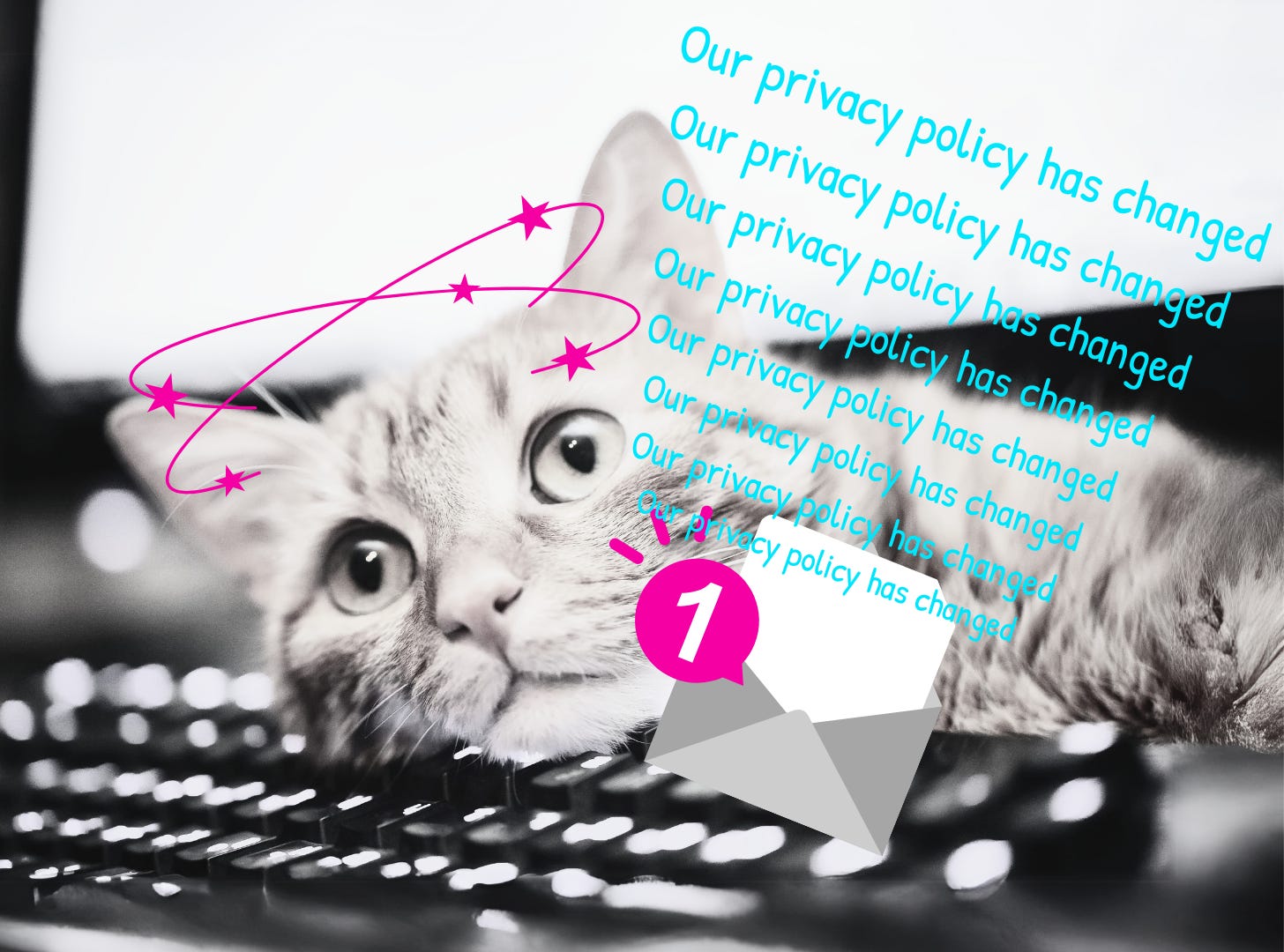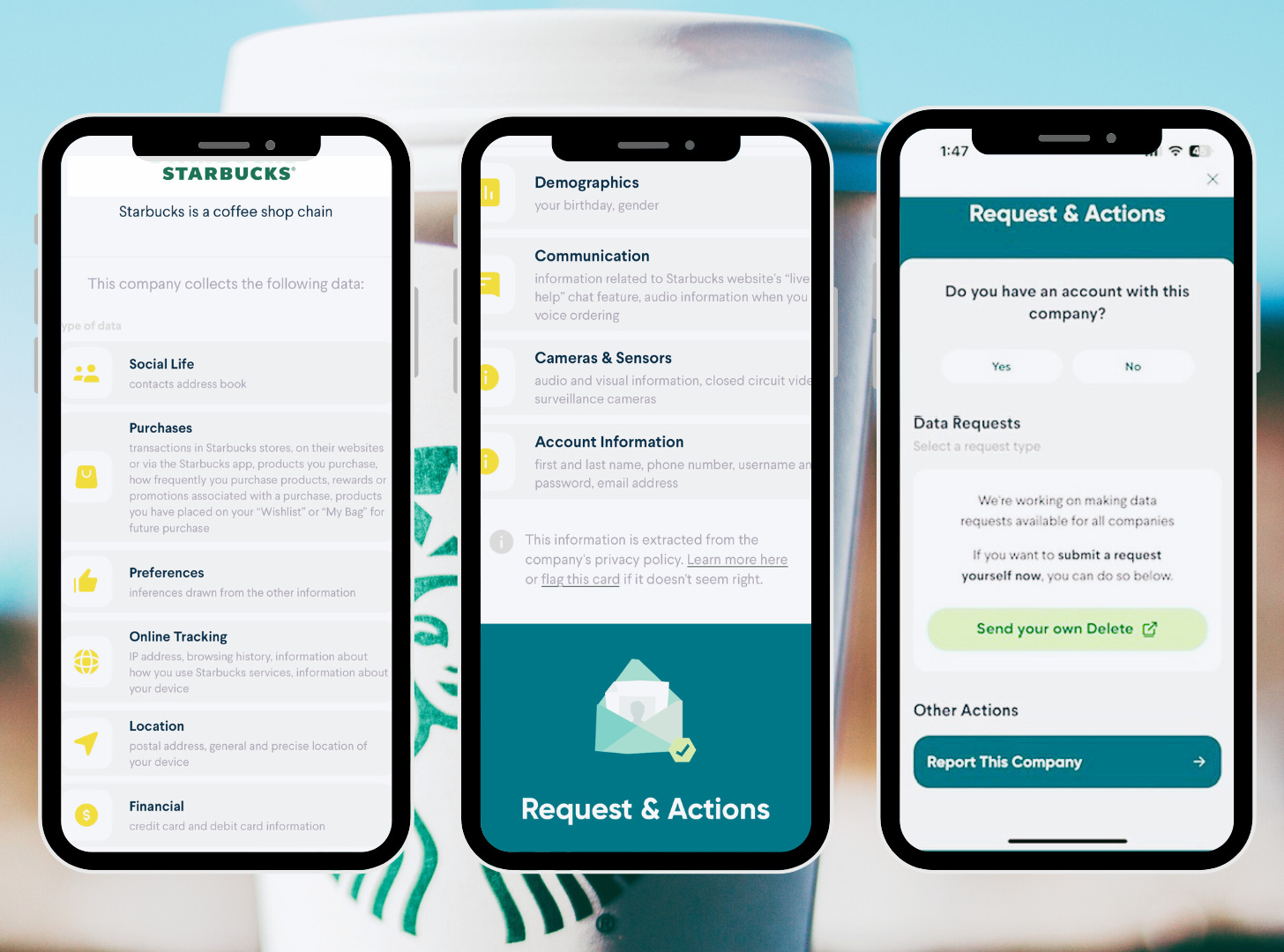Why So Many "Our Privacy Policy Has Changed" Emails?
#INVESTIGATION | Are an endless number of privacy "update" emails plugging your inbox? Why heeding an FTC warning, and checking out a Consumer Reports-owned app may shed light on what's happening...
Have you received a larger number of "our privacy policy has changed" emails than you remember ever having received before? Well, you are likely correct and the massive data requirements to train AI is to blame.
Of course, if you understand the role our data plays in training AI technology, it’s probably not a complete surprise that companies are attempting to comply with efforts to take and share more of our data.
But in any case, these notices are a good reminder that we need to take a more active role in protecting our information.
The Federal Trade Commission (FTC) even put out a warning in February stating these concerns plainly:
“You may have heard that “data is the new oil”—in other words, data is the critical raw material that drives innovation in tech and business, and like oil, it must be collected at a massive scale and then refined in order to be useful.” FTC, Feb 13, 2024
What’s notable about the FTC post was that it highlighted incidences of companies being less than transparent when making policy changes. So it’s really game on in the fight to protect our data.
Time to Get Serious
There is no way around the fact that we need to protect our data differently.
We don’t yet know the full implications of our information being used to train AI, except that a lot of people will get rich building AI innovation on our backs (and an equal number of bad actors will seek to take it via cybersecurity breaches and ransomware attacks).
The vast majority of companies do honor their legal obligations to protect our data, and It’s rarely an all or nothing proposition when using their services.
We also have the power to collectively put pressure on those who aren’t protecting our privacy well enough (e.g., schools, government) and can call foul on those exploiting our good will and willful ignorance.
But, big picture, it’s time to make this a “thing” and talk about it more. Here’s a start:
A Little Help from Consumer Reports
Consumer Reports launched its “Permission Slip” app in 2022 allowing consumers to see a summary of the data companies collect, and giving users the option to opt out, delete, and/or close an account.
Having given the app a whirl, I found getting companies to respond via Permission Slip was either cumbersome or the request can be ignored (this was more common with data brokers who buy and sell data rather than your everyday retailer or service provider).
But the Permission Slip app does something that would otherwise be incredibly labor intensive: it summarizes the policies of hundreds of companies.
Fo any of us to go company-to-company and sort through pages of (intentionally) dry, detailed, and long-winded policies would be an unreasonable ask. So even just this fact makes Permission Slip a game changer.
What to Look For
Whether you use an app to assist in reviewing privacy policies, or do even take a quick look yourself, you start to notice the things that matter to you.
For many families, especially when talking about the apps and services used by kids, location, in-store and camera/sensors can come as the biggest surprise. Here is Starbucks for example (and should prompt you to consider if the “points and perks” you receive for having an account are worth it).
In some cases, yes, either sign up and use a service, or don’t. But actually once you begin to master the details you see that there is a lot you can do.
Don’t like in-store tracking? Turn off wifi, don’t enable cellular as a back up for the app, or turn on airplane mode. Can’t believe streaming is showing ads for your kids mental health challenge that you just Googled? Turn off cross-tracking, search in private mode.
Once you play around with privacy settings on your phone, use a service such as Permission Slip, or just take some time to read the policies when you get those policy-change emails, you’ll get the hang of it.
It’s all About the Exchange
So back to why these emails are coming fast and furious, it’s about wanting more and adapting to the needs of AI innovation to learn off of this data. Before data was used primarily for marketing and that was an exchange we (at least topline) understood. Now the exchange is “learning” from you.
But the question we must ask is: does what you we “get” in return worth it? Do you even know? Or care? It matters.
Conceivably at some point, if we all are more aware, and more active in using our privacy settings (and calling foul when we see them abused), companies will feel the pressure to offer more “compensation.”
Some in the Web3 space believe we should be getting a LOT more, including payment for our data used to train new technology.
For today, it’s really as simple as this… see any email with a policy change? Read it. It will get easier to do.







